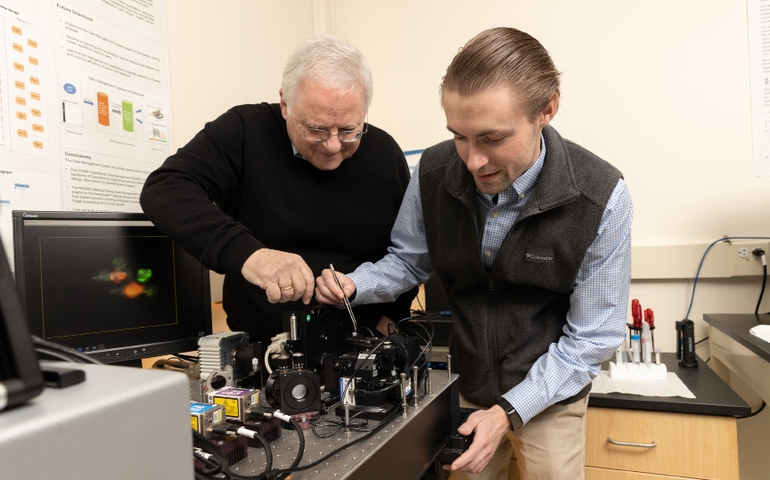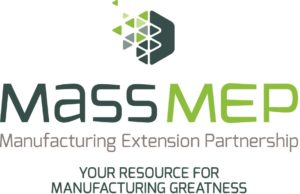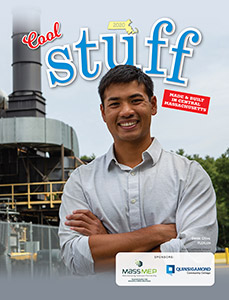Cancer comes in many forms, but the abnormal cells tend to travel through the body via the bloodstream.
It’s only when the cancer cells form a mass that traditional diagnostic imaging techniques can identify the problem and shape a counterattack.
What if a new technology could identify cancer five to 12 months earlier? And what if this new technology could also offer clues on the most effective countermeasures?
That’s the vision of Triantafyllos (Fyl) Tafas, founder, CEO and director at QCDx (Quantitative Cell Diagnostix) in Farmington.
Tafas holds a Ph.D. in ecology and population biology from the University of Athens in Greece, where he developed a new prenatal screening for the Down Syndrome biomarker and introduced the first prenatal chromosomal abnormalities screening program for his home country.
Since coming to the U.S. in 2000, he’s been a serial entrepreneur and patent factory. He co-founded Ikonisys, a maker of robotic microscopy platforms and diagnostic products used around the world; he holds or co-holds more than three dozen patents with more pending.
He started QCDx in 2017 with the goal of identifying rare circulating tumor cells as they travel through the blood system, before they attach themselves to tissue and form a mass.
The key to examining all nucleated cells in a blood sample is the RareScope, QCDx’s flagship product. The RareScope doesn’t need a microscopy slide. Instead, it utilizes a 3D tomographic method to examine cells stained with fluorescent markers.
It’s a unique approach that has been undergoing testing at UConn Health’s cancer research center across Farmington Avenue. There, the focus has been on breast cancer, but Tafas said the RareScope can identify more than three dozen unique cancer cells.
UConn Health will take delivery of its own RareScope in June, the first commercial sale for QCDx.
While QCDx also will sell the proprietary chemicals and reagents that fuel the RareScope, it is the sale of the $250,000 units that will determine the firm’s financial future.
From Tafas’ perspective, it’s technology that should be in every hospital and research facility in the world. If QCDx can even nibble at that lofty goal, financial success will follow.
But there’s a lot of work to be done first.
An engineering firm in Shelton is putting together the first commercial RareScope. Arrangements must be made for scaling up production. And that takes capital.
Connecticut Innovations was an initial investor. Tafas said a round of “friends and family” fundraising generated about a half-million dollars and the firm continues to seek angel funding. Plans are underway to seek $6 million to $8 million in Series A funding before the end of the year.
As a sweetener, Tafas teases that the technology also can be used to identify COVID-19 infection within 24 hours after exposure, a quantum leap from today’s five-to-seven day wait. Downstream, QCDx would like to explore early identification of other infectious diseases, from influenza and SARS to the common cold.
Once production issues are solved, a sales staff will be added to today’s spartan team of three employees.



